Having been brought up on an island before the discovery of the Channel Tunnel, my childhood idea of borderless travel to another country didn’t get more advanced than Scotland, or more specifically Wales.
I remember a high level of excitement in the family car associated with crossing an invisible line with a cheer, and into a place where the road signs were written in a different language.
For years growing up, our summer holidays were spent at the cousins’ caravan in Prestatyn, packed with the excitement of the wave machines at Rhyl Sun Centre and day trips by ferry from Llandudno to the Isle of Man to gawp at their no-tailed cats.
Smooth and borderless travel – there was a lot to be said for it.

If you have time, please check out this link to Rhyl Sun Centre and scroll down to the video. Dated? for sure. Funny? definitely. Odd? without doubt.
And while you’re at it I discovered this amazing BBC archive story from 1974 of three women who took hundreds of day trips by ferry from Llandudno to the Isle of Man
Having been stuck at various border posts around the globe manned by drugged-up boys with guns wanting a bribe, or blocked by guards on one end of the scale between over-officious and under-efficient, the world got a lot more complicated the more I travelled.
I’ve only been deported from a couple of countries and have only illegally sneaked into a few (although with Zimbabwe and Myanmar it was more than once).
It was only to do my job, of course, and being a journalist rather than a drug dealer it only very occasionally ended in custody and even then only briefly.
These days I get excited leaving the Valley and even a little overwhelmed arriving in a huge metropolitan city like Lisbon.
So imagine the planning associated with an adventurous trip to Spain.
The occasion was my old friend and best man Andrew Major’s 50th birthday which he had decided to celebrate in Mallorca where his family has a holiday home.
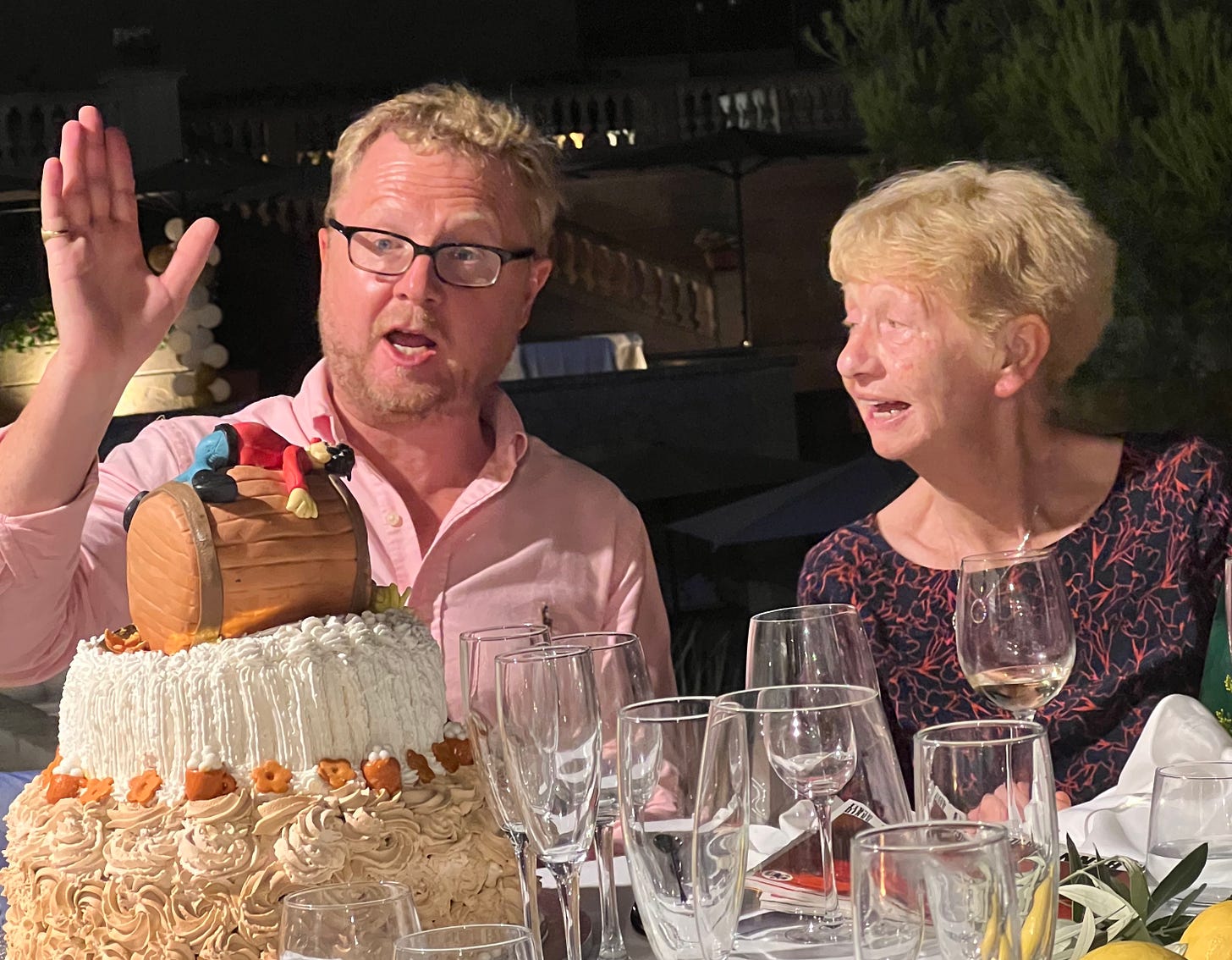
Our usual airports in Lisbon (two and a half hours) or Faro (one and a half hours) didn’t come up with much on the affordability scale.
But it was while staying with Portuguese winemaking royalty Luís Duarte and Dora Samoēs that we realised how close Seville actually was.
They were going there for dinner with the kids and to stay over for a night, and it was only three and a half hours’ drive from their remote part of inland Alentejo.
It turns out it takes even less time for us – or a bit longer with the “avoid tolls” setting turn on.
I’ve become much more used to toggling between the settings since that trip to Porto which became considerably shorter, if a little more expensive, at the flick of a switch (read about that adventure below!).
A little Googling later and we had a flight option, and despite my bad experiences with RyanAir in the past, we decided to risk it.
A few days before the trip the 50th birthday WhatsApp group lit up with questions and queries about the COVID rules and regulations for entering Spain.
It got me thinking too, and so I asked our neighbour Daniel, who had driven to Spain a couple of weeks ago, about passports, checkpoints and border posts.
He reassured me there was nothing to it, and he was right: there was absolutely nothing to it, nothing at all, in fact.
In search of adventure we’d opted for the scenic “no tolls” route which took us east to the Guadiana River natural park, a beautiful but terrifyingly long and winding single track road and then south onto the main motorway in the Algarve.
The Guadiana is a wide river creating the border between Portugal and Spain for about 100km from the ocean, and has been hugely important throughout the history of both countries...I’ll save that rabbit hole for a future blog!
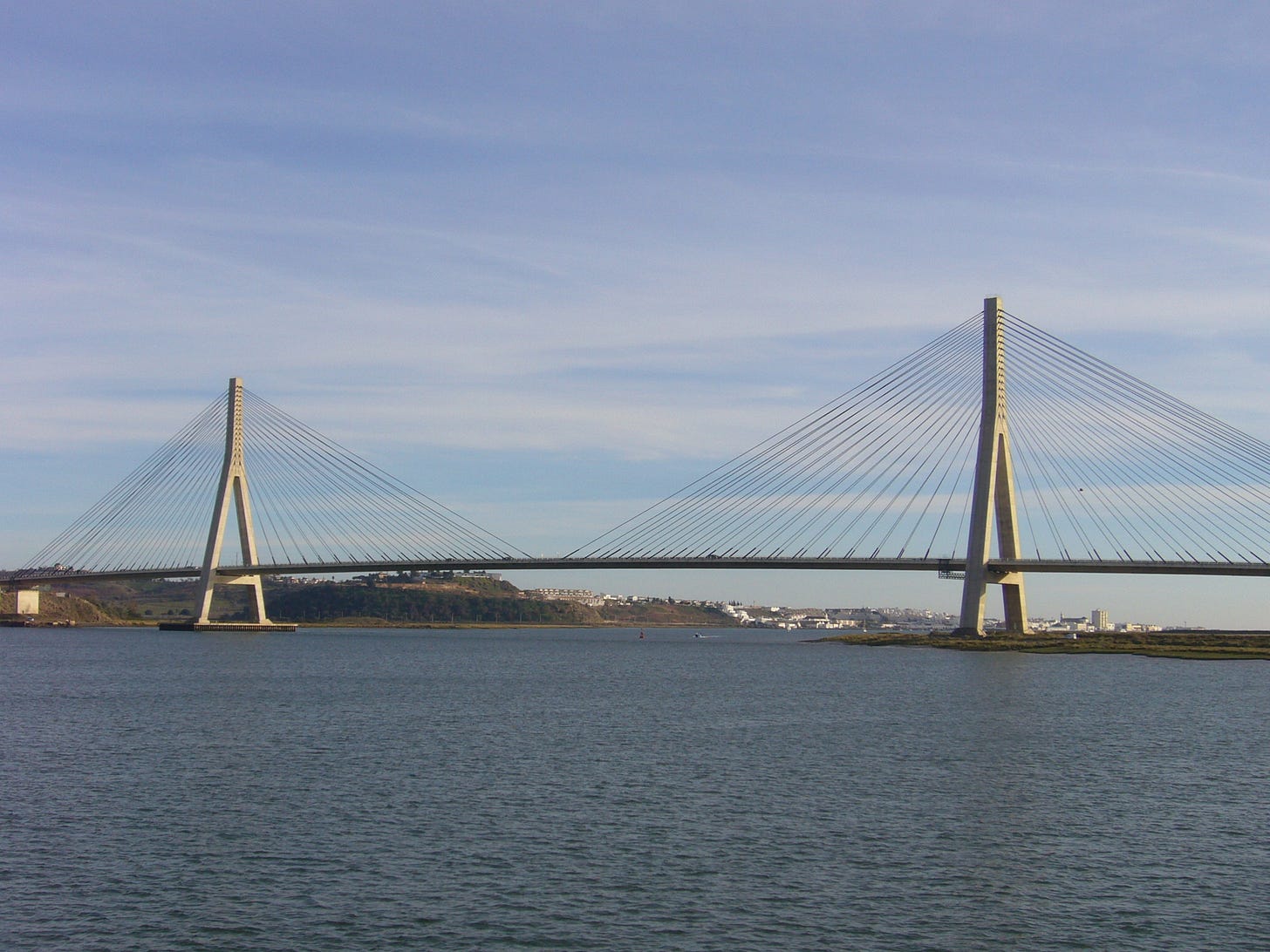
Crossing the twin-towered, cable-stayed bridge, the only thing that signified we’d entered Spain was when the clock on my phone flicked forward an hour, and the estimated arrival time at the airport jumped 60 minutes closer to take off.
(Thanks to Daniel’s multiple reminders about European time zones we had planned for that).
The road surface got a little bumpier, the road sign font changed to something a little less modern and praias became playas.
Nestling between the familiar groves of citrus fruit and olive trees appeared wide swathes of happy yellow sunflower fields and a solid barrier of pink and white colour lined the central reservation: oleander.
We have a few of them on the farm and they are a motorway feature in Portugal too, but after Ana announced her general hatred for oleander I embarked on a programme of elimination last summer.
They were part of a tree wall our German predecessor had used to completely block any view down the valley from the house.
A fast growing tree known for its “living fence” qualities and with thick deep roots, had the additional impact of collapsing the retaining wall.
The estate agent had shrugged and mumbled something about her liking her privacy when I asked why anyone would do that.
We have had the occasional deer or wild boar (wild boar) wandering past, and given the apparent German tendency to sunbathe naked I suppose it was prudent, but one of the first things on the ta-da list was “liberate view.”
On the advice of landscaper Carlos I cut every tree and bush I wanted rid of as close to the ground as I could, and wrapped black plastic sheeting over the stumps.
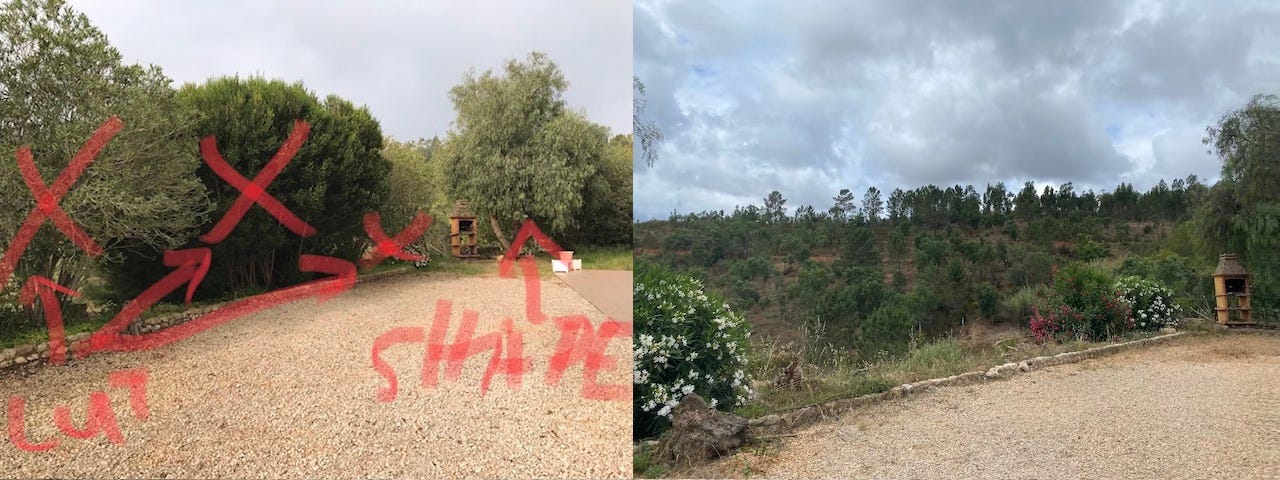
Months of baking in the Portuguese sun later and I unwrapped the stumps with confidence and was happy to discover the insanely fast-growing tree was a goner.
But the oleanders? Not so easy to kill. Not content with having poisonous sap, leaves, flowers and stems so you have to trim them wearing gloves and goggles and can’t burn them, it also appears they like being baked.
“Drought resistant” just doesn’t cover it.
Back up they came, and now our view is framed by clumps of pink and white, providing me with even more incentive to build the deck out over the hillside and bypass the bushes altogether.
But having said that, Ana has now changed her mind about oleander and quite likes them.
They do look a bit fake in the countryside – their colours a bit like candy – but they are native to the region, flower for much of the year and are part of Portugal’s scenery...so it’s brutal, if cautious, trimming from now on to keep them present, but in control.
Spain was busy – Seville is surprisingly large – and the airport was packed with excitable British schoolchildren, maskless holidaymakers and groups of lads with matching shirts.
The birthday weekend was legendary: a fantastic celebration with a remarkable man at the centre of it all – generous hosts and a great chance to reconnect with old friends while also making new ones.
On the way home, Mallorca airport was an utter madness of maskless crowds jammed into small spaces and party time for the old foe COVID-19 which we finally succumbed to on our return after years of avoiding it. Thanks Spain.
But we like its shops. More choice, a bit cheaper than Portugal and only three hours from our house on the toll roads.
Given the free market and open borders in Europe we’ll be making more trips there to furnish our new buildings – and we’re told mature olive trees are also cheaper next door.
Smooth and borderless travel, open for cross-country trade: what a great idea – there’s a lot to be said for it...from our experience at least.
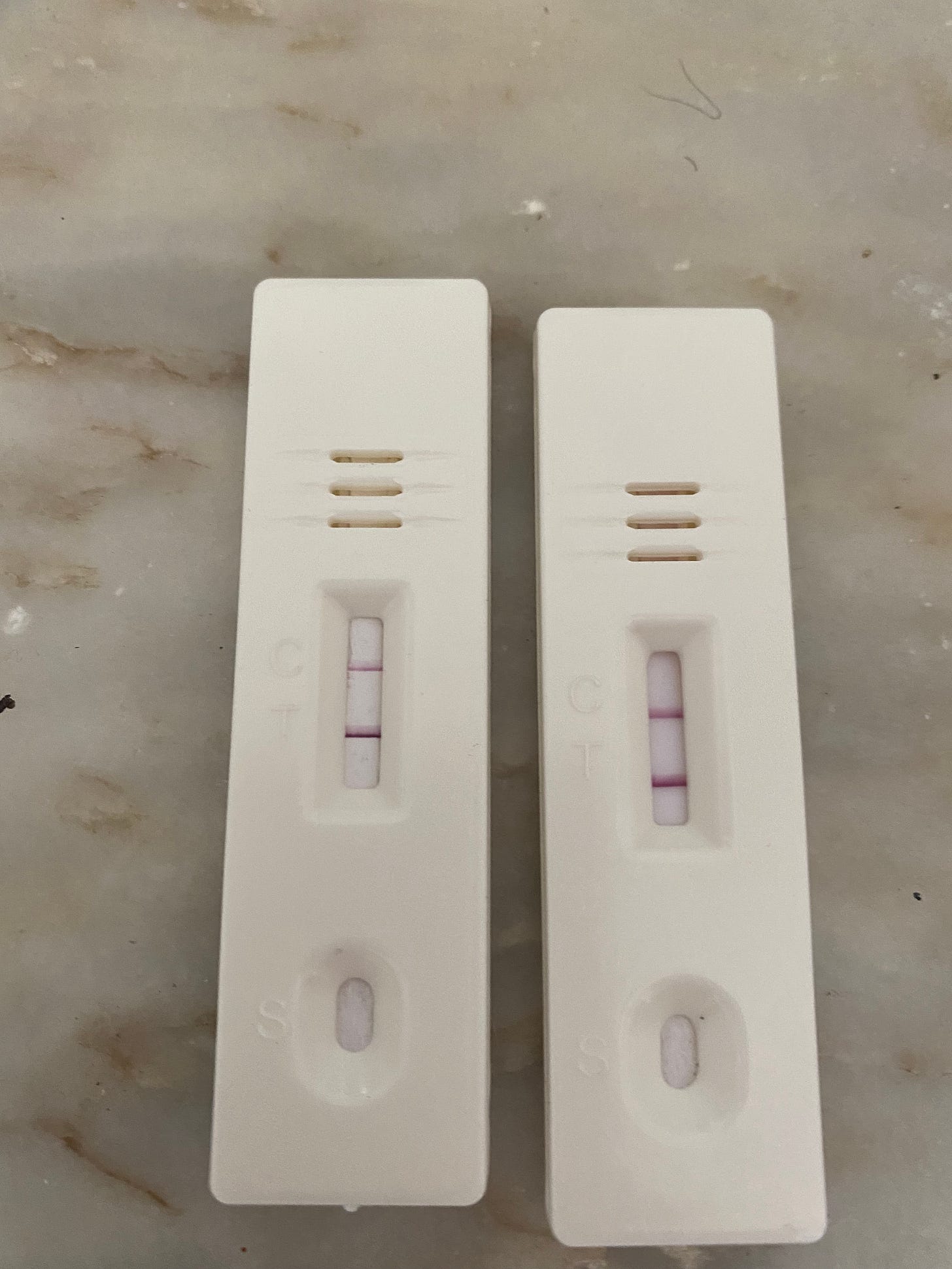
Of course the other great believer in frictionless travel across international borders is COVID-19.
And that sadly means we can’t travel this weekend to the wedding of the wonderful Pete Martell and Robyn Kennedy in Northumberland. Sorry guys - have an amazing day.
Thanks COVID.
Thanks Spain.
Oh, and if you haven’t signed up for our wine blog yet - there’s a new post coming out delving into Roman history and meeting an actual living wine God. Sign up now!






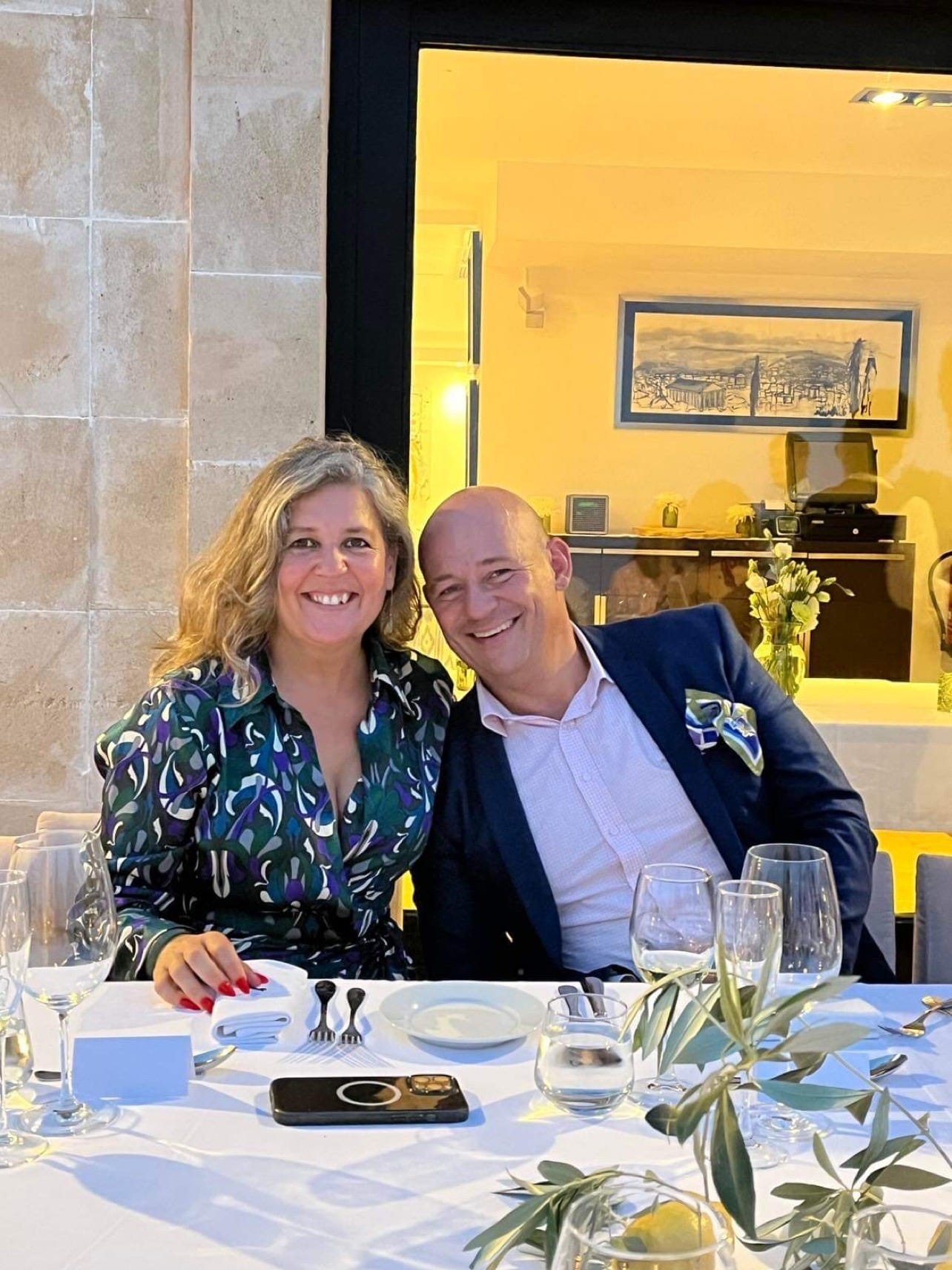
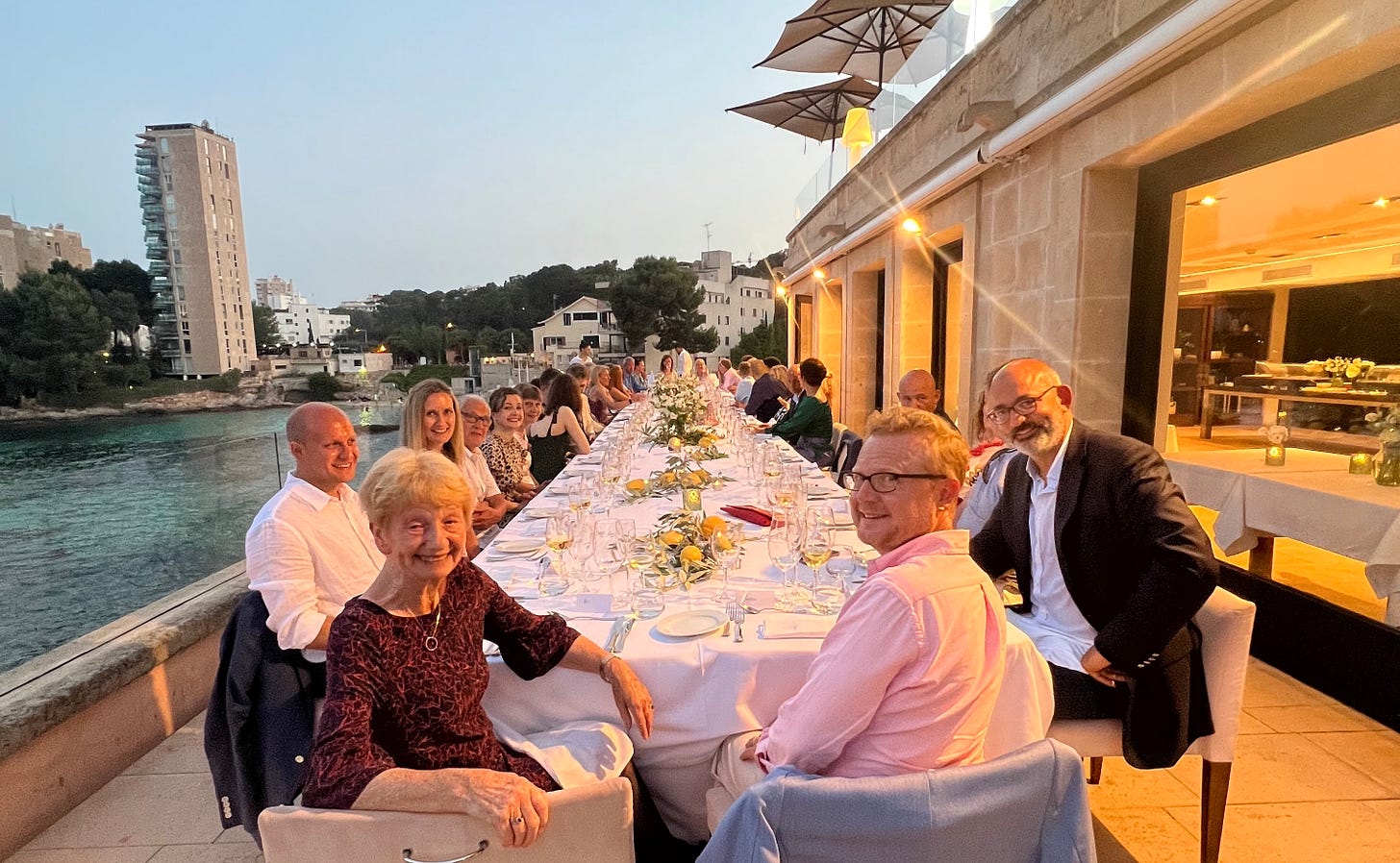
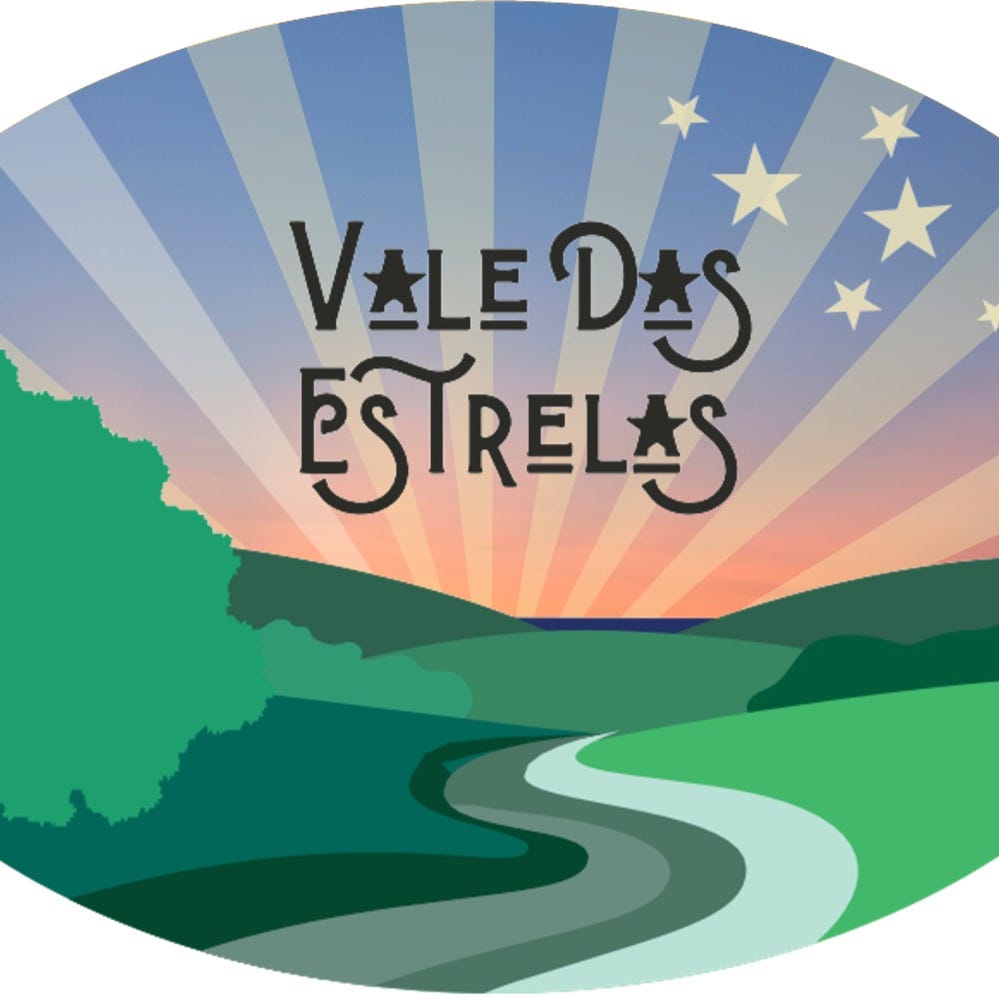
What a wonderful account of the trip to Spain, sure made me miss that European possibility of being in a completely different country, culture and language in just a short drive. You should have included pictures of the birthday food, especially el jamon serrano, I'm sure it was glorious!
I need to know more about this, please: I’ve only been deported from a couple of countries and have only illegally sneaked into a few (although with Zimbabwe and Myanmar it was more than once).
LOL LOL